Bloated after eating bread? 6 breads that won’t make you bloat
We look a various breads, including sourdough and gluten free breads, to avoid bloating
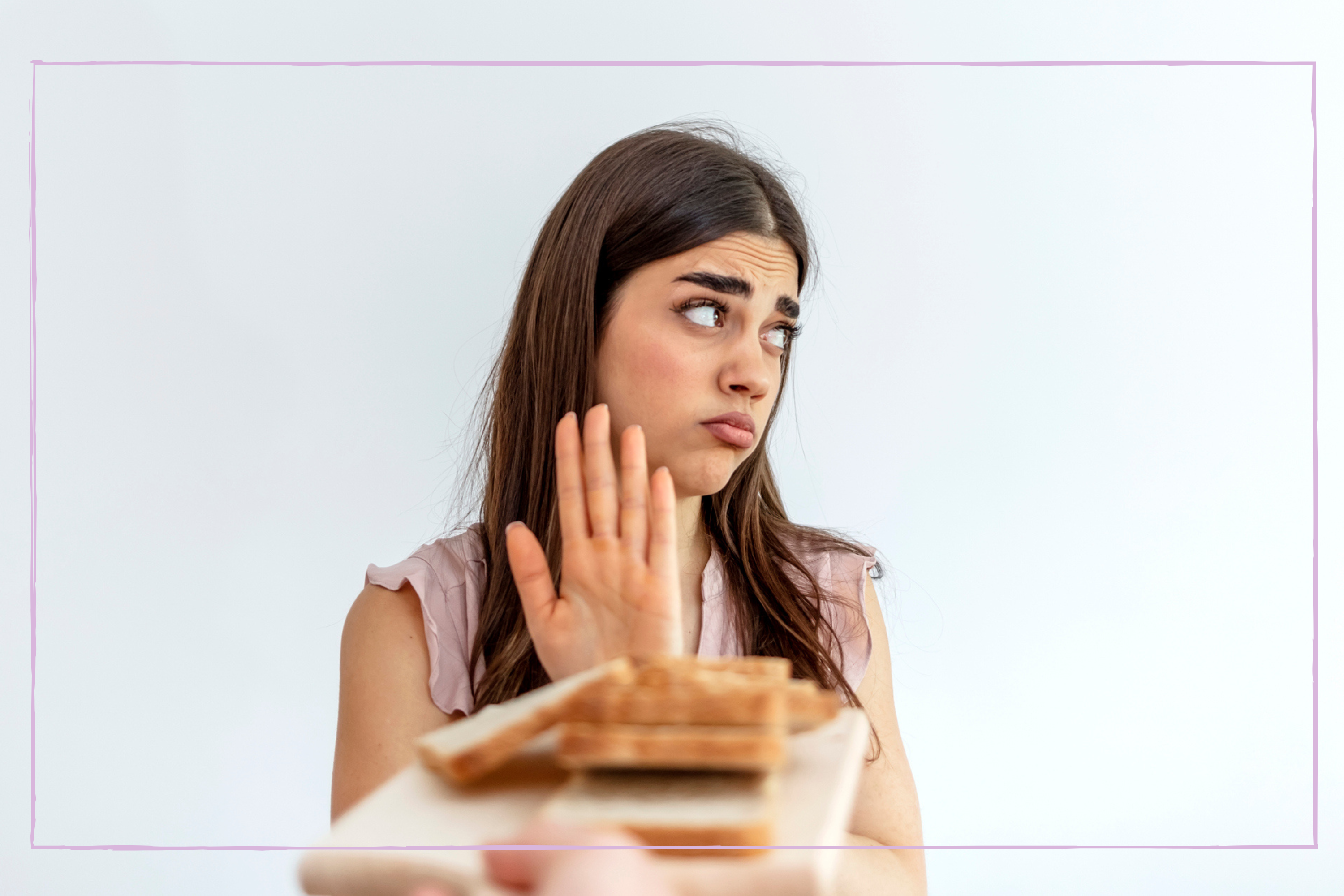
Are you all too familiar with that uncomfortable swollen feeling after eating toast for breakfast or a sandwich for lunch? We feel your pain. But what if there are breads that won’t make you bloat?
To understand why this much-loved staple food can cause bloating (and if you're suffering while you read this, here are some natural ways to reduce bloating you can try, or how to get rid of trapped wind) we asked dieticians Helen Bond and Sarah Brook about what happens to us when we eat bread, and if certain breads such as gluten free or sourdough are less likely to cause problems.
So, why do some of us bloat when we eat bread? And what are the breads that won't make you bloat? The experts share their views on 'healthy breads' and how to best avoid bloating if it happens to you...
Why do I feel bloated after eating bread?
'There are lots of reasons for bloating, but some people find that they feel more bloated after eating bread,' says Sarah. 'There's a common misconception this is because of gluten (a protein found in wheat, barley and rye). However, it's only certain people such as those with coeliac disease (an autoimmune condition where the body attacks part of the gut in response to eating gluten) who need to avoid it,' she says.
'For the average healthy person, there’s very little proof bread causes bloating,' says Helen. 'A 2014 review by Dr Elisabeth Weichselbaum for the British Nutrition Foundation found no correlation between bread consumption and symptoms. It may be that people who feel bloated have a gut that's more sensitive to distension. Or they feel bloated because of constipation,' she explains.
If you do feel bloated after eating bread, here are some possible reasons why, says Sarah:
- Portion size - Eating too much of anything can make us feel bloated.
- Fructans - (carbohydrates in wheat) or other 'FODMAPs' in bread. FODMAPs are prebiotics found in certain foods. They're great because they feed gut bacteria, but this can create gas and make us feel bloated.
'Fibre may be another reason why some people experience bloating,' says Helen. 'Dietary surveys reveal that in the UK, on average, bread provides a fifth of our total fibre intake. A slice of wholemeal bread (40g) provides 2.7g fibre – that’s about 9% of our daily fibre needs. so it's not exactly a surprise that most people may be eating a low fibre diet without even realising it.
Parenting advice, hot topics, best buys and family finance tips delivered straight to your inbox.
'Fibre can't be digested in the small intestine and passes into the large intestine (colon). Some fibre is fermented by our gut microbes and this produces gas. The amount of gas produced depends on the type and amount of fibre, but also on our gut microbiota – which is unique to us,' she says.
'It’s important to be aware that occasional bloating is completely normal, especially if you’ve just eaten a large meal or taken in extra fibre,' adds Helen. 'It’s a sign that your gut microbes – which have the unique skill set to break down fibre – are doing their job.'
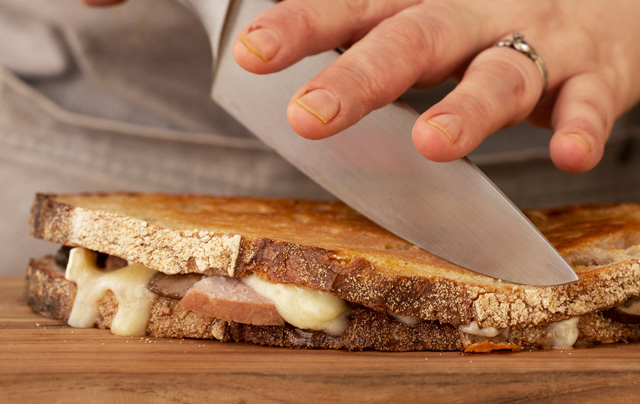
Does sourdough bread cause less bloating?
'Sourdough bread is often made using various wheat-based flours. Just like conventional bread this can lead to us feeling bloated if eaten in large amounts, or due to the gas produced in our gut in response to any prebiotics in the bread,' says Sarah.
'Interestingly though, 100% spelt sourdough bread tends to be low in fructans due to the fermentation process so you may not feel as bloated when eating this in moderation – assuming there are no added prebiotics,' she explains.
'Some studies suggest that when using sourdough to make bread some gluten is broken down, so bread made with sourdough may cause fewer gut symptoms in some people,' says Helen. 'However, levels of gluten still remain too high for it to be appropriate for coeliac sufferers,' she warns.
'Sourdough bread is often touted as one of the best loaves, thanks to its simplicity of ingredients, but in reality the healthiest loaf is the one you tolerate best,' adds Helen. 'If you don’t have a problem with seeded wholegrain then you’ll get more fibre and nutrients, so go for that.'
Will gluten free bread stop bloating?
Are there any gluten free breads that won't make you bloat? 'Not necessarily,' says Helen. 'And a gluten free diet (if you're not affected by coeliac disease or have a gluten sensitivity) can be more harmful than beneficial. Avoiding gluten may result in a low intake of wholegrains (linked with heart health benefits) and you may miss out on vitamins, minerals and fibre,' she says.
'Gluten free bread may reduce that bloated feeling due to it typically being free from wheat which, you've guessed it, means it contains less fructans,' says Sarah. 'However, some gluten free breads contain added prebiotics like inulin which may increase bloating in some people.'
You could try a supplement such as GlutenEase. 'This is a digestive enzyme blend that will help the stomach break down gluten,' explains naturopath Leyla Moudden. 'An enzyme called DPP-IV is included to target gluten and protect the gut from undigested gluten particles. When taken with the first bite of bread, users can expect to see a reduction in bread-induced bloat,' she says.
However, try not to self diagnose. 'If you're suffering with gut issues please speak with your doctor before reducing gluten from your diet as they may decide to test for coeliac disease,' says Sarah.
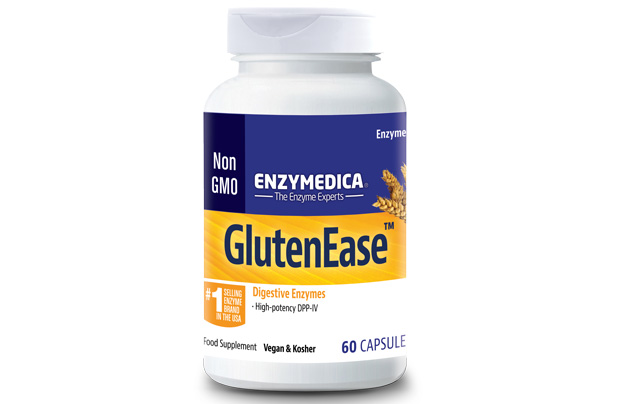
Best bread brands that should help beat the bloat
So, are there breads that won’t make you bloat? 'There are many reasons why we may experience bloating as well as many different types of bread, and one size doesn't fit all,' says Sarah.
Helen agrees: 'People’s responses are very individual, so experiment with different grains and types of bread,' she says. 'Some people with IBS, for example, find white bread much easier to tolerate because it’s high fibre foods that are a trigger. Or, if you’re sensitive to yeast, yeast free flat breads like pitta or tortilla may be fine. I'd recommend anyone who suspects an intolerance to try cutting down on portion sizes, then ask your GP for diagnostic tests before cutting it out completely. A dietitian like myself will be able to advise you.'
Take a look at these six options – they may be the breads that won’t make you bloat.
1. Genius Gluten Free Gut Lovin’ Greatness Joy-Full Artisan Loaf
This loaf contains tummy-loving active cultures and sunflower, poppy, linseed and flaxseeds for extra flavour and nutrition.
'Fibre is really important for gut health. According to the National Diet and Nutrition Survey (2020) most of us don't eat enough,' says Sarah. 'This high fibre, gluten free bread gets good feedback on its soft inner texture and crusty outside but please be mindful that it contains chicory root fibre which is a prebiotic and may lead to bloating in those with IBS, for example,' she warns.
'Be mindful that some gluten free foods contain wheat starch where the gluten has been removed,' adds Helen. 'These are not suitable if you have wheat allergy.'
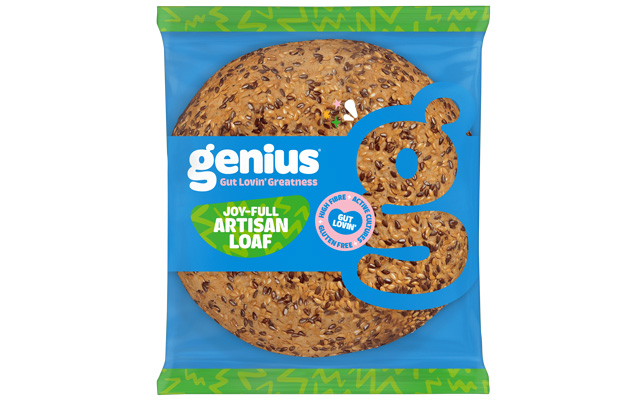
2. Biona Rye Bread Pumpkin Seed
A snack of hummus on a slice of this nutritious organic rye bread will keep your blood sugar levels steady and fill you up until dinner time.
'A wholegrain, wheat free bread such as this will provide lots of fibre and offers a rich, nutty taste,' says Sarah. 'But note that it contains gluten.'
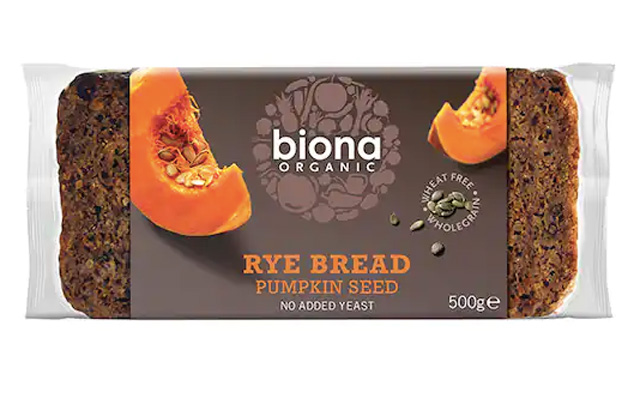
'You won't find any flour, dairy or yeast in this super seeded vegan loaf. It’s high in fibre, omega-3 fatty acids and includes magnesium, which can help ease bloating and water retention.
'This is an oat-based, dense type of bread. It boasts a range of benefits including a very high fibre and protein content,' says Sarah. 'Although due to the apple cider vinegar, anyone following a low FODMAP diet should be careful with this option.'
3. The Heart of Nature Pure Grain Bread
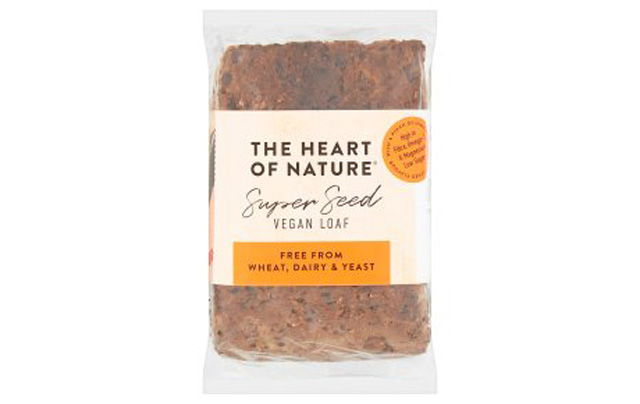
4. Schar Gluten Free Wholesome Seeded Loaf
Made with sourdough and ancient grains such as millet and quinoa, this offers a lighter texture. It's ideal if want to avoid that heavy ‘full feeling’.
'This product is gluten free and low FODMAP,' says Sarah. 'It's also quite soft in texture, freezes well and provides a good source of fibre – great for gut health.'
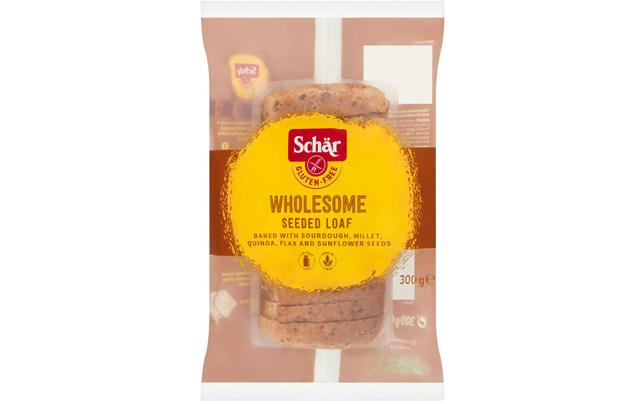
5. LivLife Seriously Seeded Sliced Bread
Seed lover? This sliced bread contains linseeds, sunflower seeds and pumpkin seeds. It offers a healthy dose of good-for-you fats, and natural vegetable protein flours to replace some of the wheat flour, so it's lower in carbs than standard bread. For example, 100g of this bread provides 10.2g carbs, while 100g of Warburton's Malted Seeds and Grains bread provides 43.4g.
'This is a well-received high fibre, albeit prebiotic-containing, bread. But if you have diabetes always discuss with your medical team before making significant changes to your carbohydrate intake,' says Sarah. 'And always look at the nutrition per 100g [rather than portion size] with products that claim a reduced amount of a dietary component.'
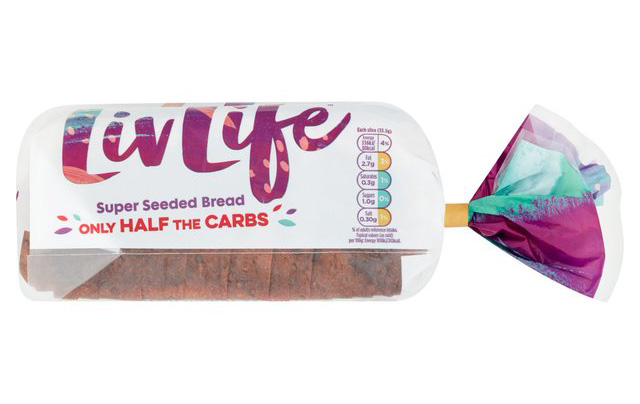
6. Cru8 Keto Vegan Bread
This vegan bread is more expensive but offers what most breads don't – low carbs and a hefty 8g fibre per 60g serving. It contains ground almonds, coconut flour and golden flaxseed and is a great source of vitamin E, riboflavin, magnesium and manganese.
'This is another high fibre, lower carbohydrate bread,' says Sarah. 'Eat it as part of a balanced diet and be careful of restricting certain components from your diet without seeking advice first. Otherwise, you may miss out on key nutrients.'
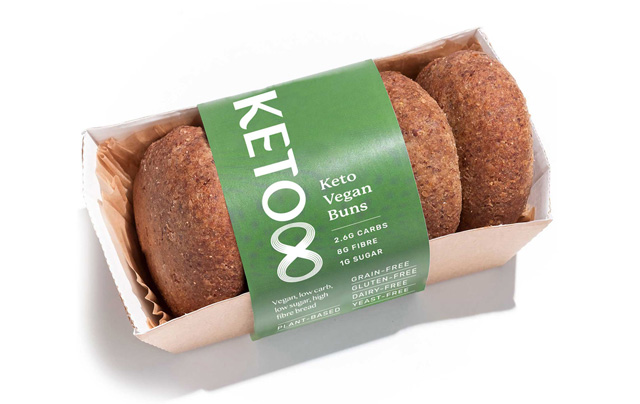

Debra Waters is an experienced online editor and parenting writer. She also has a strong background on health, wellbeing, beauty, and food. She currently writes for Goodto and Woman&Home, and print publications Woman, Woman’s Own, and Woman’s Weekly. Debra has written for What to Expect, Everyday Health, and Time Out. In addition, she has had articles published in The Telegraph and The Big Issue.